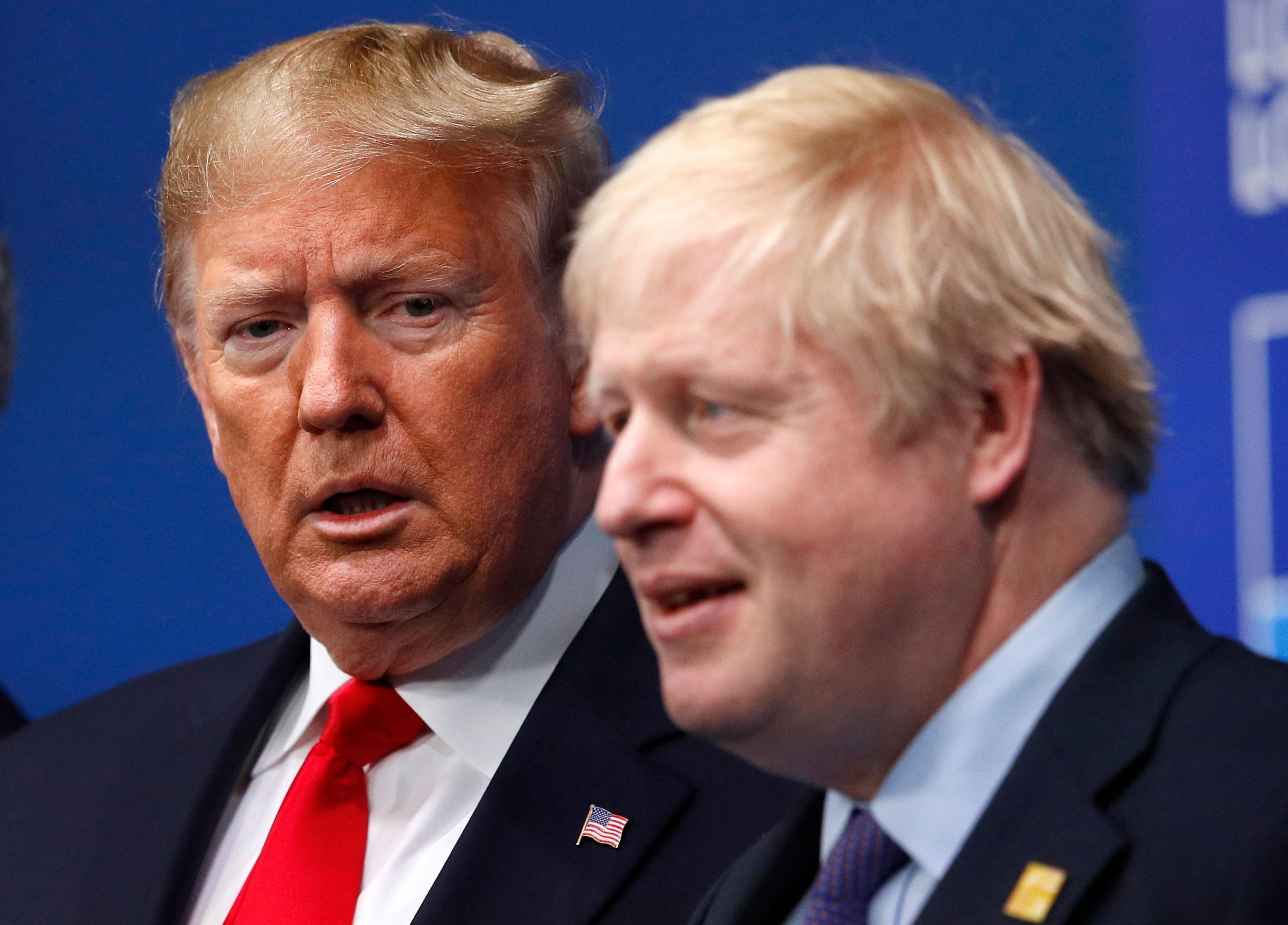Boris Johnson urged to stop ‘cosying up’ to Trump and focus on UK-EU trade talks
UK government publishes its negotiating objectives with US with trade talks expected to begin later in March

Your support helps us to tell the story
From reproductive rights to climate change to Big Tech, The Independent is on the ground when the story is developing. Whether it's investigating the financials of Elon Musk's pro-Trump PAC or producing our latest documentary, 'The A Word', which shines a light on the American women fighting for reproductive rights, we know how important it is to parse out the facts from the messaging.
At such a critical moment in US history, we need reporters on the ground. Your donation allows us to keep sending journalists to speak to both sides of the story.
The Independent is trusted by Americans across the entire political spectrum. And unlike many other quality news outlets, we choose not to lock Americans out of our reporting and analysis with paywalls. We believe quality journalism should be available to everyone, paid for by those who can afford it.
Your support makes all the difference.Boris Johnson has been urged to stop “cosying up” to Donald Trump and focus on securing a good UK-EU trade deal, as the government outlined its objectives for upcoming negotiations with the US.
The Department for International Trade (DIT) said on Sunday it expects trade talks with Mr Trump’s administration to begin later this month, as it vowed to “rigorously protect” the NHS and ensure high standards of food safety.
The vow comes as the UK and EU kickstart post-Brexit negotiations over the future relationship and trading partnership, as the prime minister’s Europe adviser David Frost heads to Brussels on Monday.
Crawford Falconer, the chief trade negotiations adviser at DIT, will lead the negotiations on behalf of the government, with talks expected to alternate between London and Washington.
The department — spearheaded by Liz Truss — claimed a transatlantic trade deal would deliver a £3.4bn boost to the economy, increasing trade flows between the UK and the US by £15.3bn.
DIT said that manufacturers of ceramics, cars and food and drinks, and professionals such as architects and lawyers, were among the industries the UK government expected to be the “biggest winners” from a deal with Mr Trump.
But Frances O’Grady, the general secretary of the Trade Union Congress, said the government should be focused on getting a good deal with the EU, rather than “cosying up to Donald Trump”.
She said: “President Trump doesn’t care about the UK. The only trade agreement he wants to strike is one that will line the pockets of his corporate backers. Nobody voted for chlorinated chicken or for US corporations to have more access to our personal data.”
Among the government’s negotiating objectives, to be published today, the department said it would defend the UK’s freedom to provide public services.
“The NHS is not for sale and the government is committed to guiding principles of the NHS — that it is universal and free at the point of use,” the department said.
It added that ministers will “ensure high standards and protections for British consumers and workers”, and vowed to “uphold the UK’s domestic standards on food safety and animal welfare”.
Just last week, however, the newly appointed environment secretary failed to offer a clear commitment that the import of chlorinated chicken and hormone-fed beef will be off the table in any trade deal with the US.
George Eustice, who was appointed in the recent reshuffle, said the government had “no plans” to change the ban on the two products but did not give a guarantee on the issue, which is expected to prove a crunch point in trade talks with Mr Trump’s administration.
In a statement, Mr Johnson said: “We have the best negotiators in the business and of course, we’re going to drive a hard bargain to boost British industry.”
“Trading Scottish smoked salmon for Stetson hats, we will deliver lower prices and more choice for our shoppers,” he claimed. “Most importantly, this transatlantic trade deal will reflect the closeness of our two great nations.”
Ms Truss added: “This deal with our biggest single trading partner will cut red tape for small businesses, cut tariffs for our great products from diary to cars and increase growth in all four nations.”
Barry Gardiner, the shadow international trade secretary, however, said: “This is a government that has sought, at every opportunity, to resist efforts to lock in our high standards and to ensure robust protections for our NHS.
“Their false promises are meaningless — they have said they won’t undercut our food standards whilst briefing that chlorinated chicken and hormone-fed beef are perfectly acceptable.
“That is why there must be a full and proper scrutiny process for this and all trade agreements.”
Join our commenting forum
Join thought-provoking conversations, follow other Independent readers and see their replies
Comments